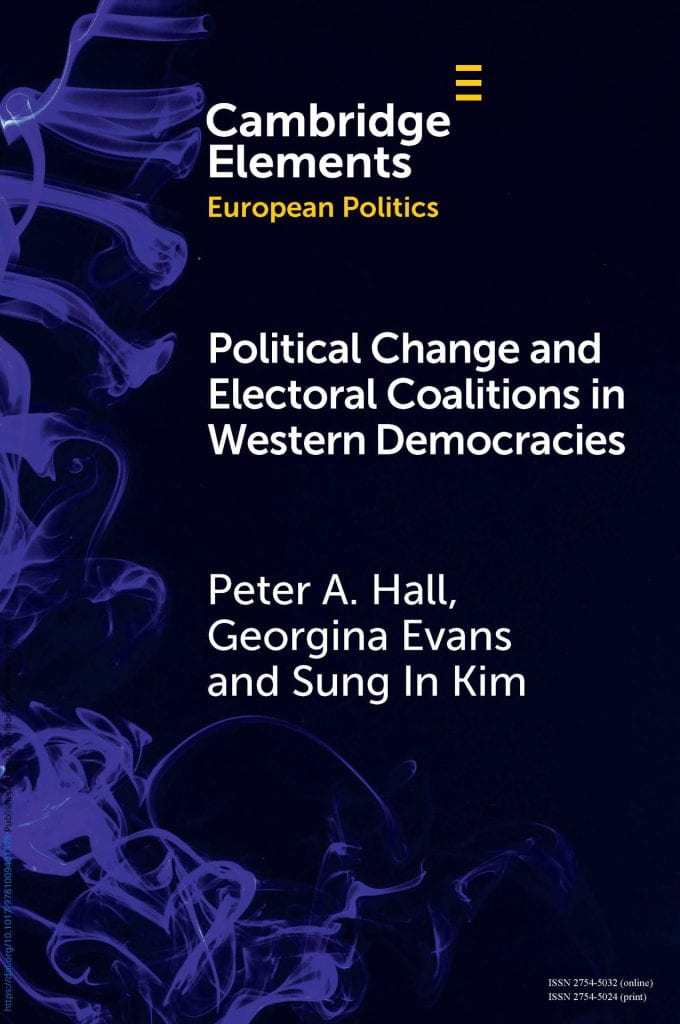This study by Peter Hall, Georgina Evans, and Sung In Kim documents long-term changes in the political attitudes of occupational groups, shifts in the salience of economic and cultural issues, and the movement of political parties in the electoral space from 1990 to 2018 in eight western democracies.

This study by Peter Hall, Georgina Evans, and Sung In Kim documents long-term changes in the political attitudes of occupational groups, shifts in the salience of economic and cultural issues, and the movement of political parties in the electoral space from 1990 to 2018 in eight western democracies.
We evaluate prominent contentions about how electoral contestation has changed and why support for mainstream parties has declined while support for challenger parties increased. We contribute a new analysis of how the viability of the types of electoral coalitions assembled by center-left, center-right, radical-right and Green parties changes over these decades. We find that their viability is affected by changes over time in citizens’ attitudes to economic and cultural issues and shifts in the relative salience of those issues. We examine the contribution these developments make to declining support for mainstream center-left and center-right coalitions and increasing support for the coalitions underpinning radical right and Green parties.
Published in July 2023. Find out more via Cambridge University Press.
